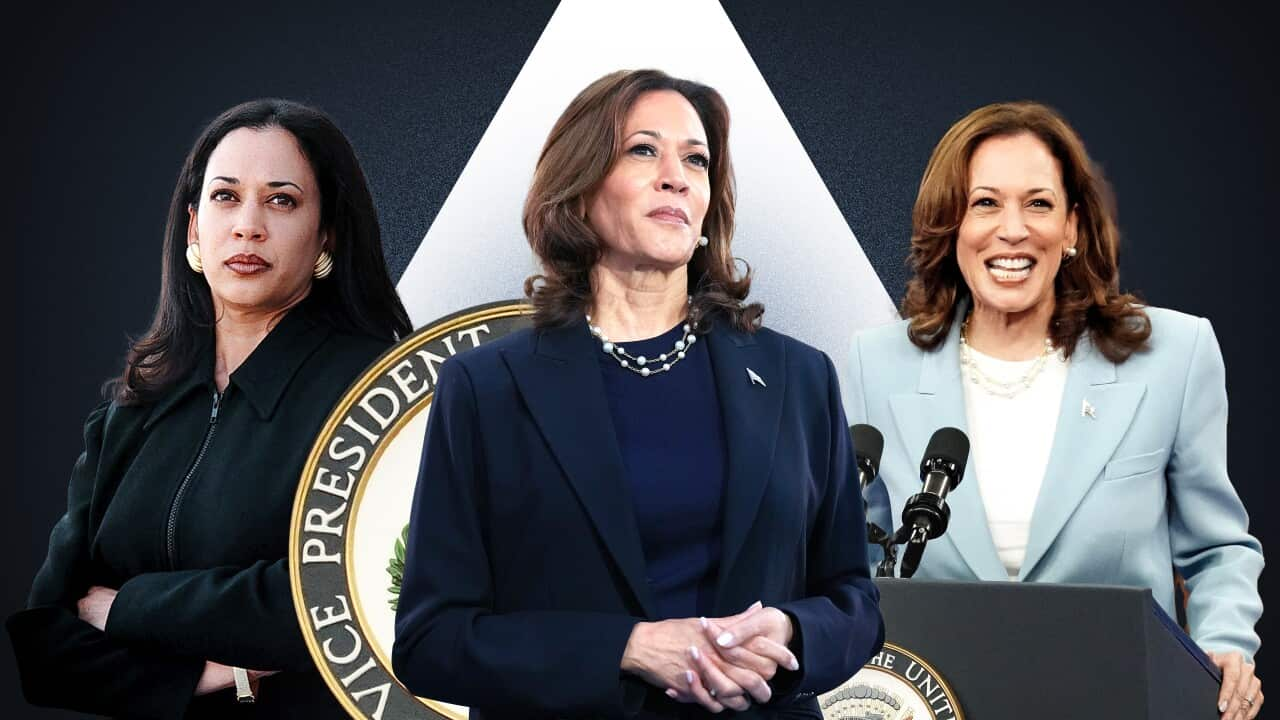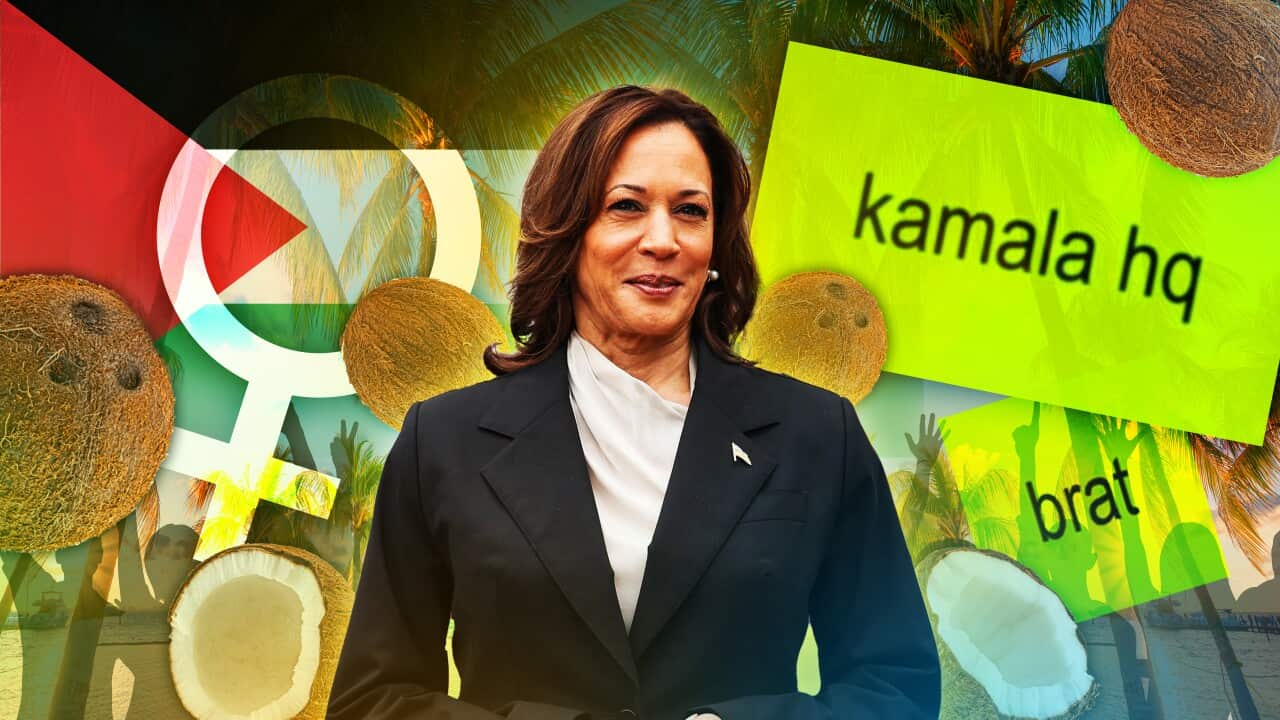Kamala Harris has made history with many firsts — being the first woman and the first Black and South Asian person to serve as California's attorney-general — and the first woman of colour elected as vice president of the United States.
Now, she aspires to become the first woman to hold the country’s highest office.
Here's a look at how she achieved this.
A multicultural upbringing
Harris was born in Oakland, California, on 20 October 1964, to immigrant parents.
Her Jamaican father became the first Black scholar to receive tenure in Stanford University's economics department, where he remains a professor emeritus. Her Indian mother, a breast cancer researcher, passed away at the age of 70 in 2009.

Kamala Harris was born in Oakland, California, to two immigrant parents: an Indian-born mother and a Jamaican-born father. Source: Twitter / @VP
In 1982, she enrolled at Howard University, a historically Black university in Washington DC, where she earned a bachelor's degree in political science and economics.
She then attended law school at the University of California, Hastings.
From law to politics
Harris began her career as a prosecutor, accumulating nearly three decades of experience in law enforcement.
She served as a deputy district attorney for Oakland's Alameda County and was then elected as the district attorney of San Francisco in 2004, becoming the first woman and the first Black and South Asian American woman to hold the office.
She implemented innovative programs aimed at reducing recidivism (the tendency for previously convicted individuals to re-offend) and improving the criminal justice system, such as a focus on restorative justice and mental health diversion programs.

In 2016, Kamala Harris was elected to the Senate in a landslide, becoming the second Black woman and the first South Asian American to serve as a US senator. Source: Getty / Barbara Davidson
Harris later leveraged her experience and public recognition to launch a successful campaign for the US Senate in 2016.
In the Senate, she applied her prosecutorial skills in committee hearings, gaining attention for her sharp questioning and commanding presence.
Her political successes set her sights even higher in 2019 when she launched her presidential campaign, rivalling Joe Biden.
However, due to internal issues and a lack of clear and compelling policies to attract voters, her campaign faced sliding poll numbers and dwindling funding. She suspended her campaign months before the primaries.
Later,, calling it "the best decision" he'd made, which was a turning point for her political career.
First woman vice president

Joe Biden made history by selecting Kamala Harris as the first woman, the first African American, and the first Asian American to serve as vice president. Source: Getty / Andrew Harnik
She set a record for the most tie-breaking votes cast by a vice president in Senate history, facilitating the passage of critical legislation like the Inflation Reduction Act and the American Rescue Plan, which provided essential COVID-19 stimulus payments and relief measures.
The vice president also serves as the president of the Senate and has the constitutional power to cast the deciding vote in the event of a tie on legislative issues.
A major concern for the Biden administration — America's immigration issues have also kept Harris busy as vice president. The administration faced criticism when the number of migrants crossing the US-Mexico border reached record levels several times during its first three years.
Biden assigned the task to Harris when he became president in 2021.
She was criticised during her early days as vice president for her handling of the issue, with Donald Trump even labelling her a "failed border czar".
Harris was also criticised by some Democrats as "clumsy and counterproductive", particularly due to her delayed visit to the US-Mexico border. She defended her decision, stating that she chose to visit El Salvador, Guatemala, and Honduras to address "the root causes" of America's illegal immigration problem.
According to a Gallup poll in 2019, 74 per cent of Americans thought the border situation was a crisis or major problem. In 2024, that number rose to 77 per cent.
However, according to a New York Times report, illegal border crossings have "now dropped to their lowest levels since Mr. Biden and Ms. Harris took office".
She actively promoted the Infrastructure Investment and Jobs Act — a law that authorises a US$1.2 trillion ($1.78 trillion) investment in the country's infrastructure and competitiveness.
Harris has played a pivotal role in the Biden administration's efforts to codify voting rights, which establishes legal protections to ensure all citizens can vote without discrimination.
After Biden ended his re-election campaign following in June, .
A month after entering the race, she raised a record-breaking US$500 million ($744 million) from donors. In July alone, the Harris campaign raised three times more funds than Trump's campaign.
Want more politics? You can stream poignant political documentaries in the SBS On Demand 'Politics and Power' collection and keep up with daily news bulletins in the .




